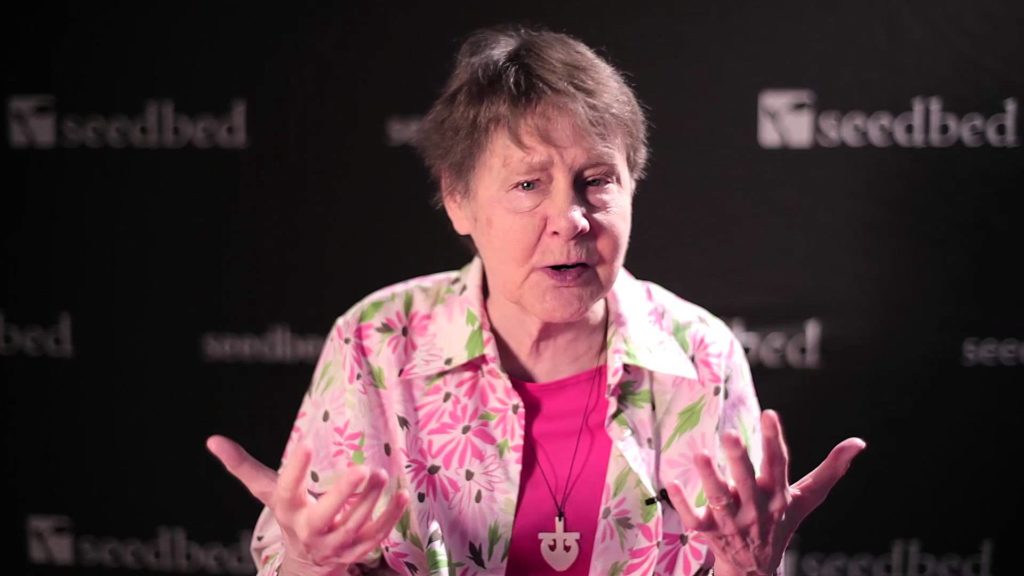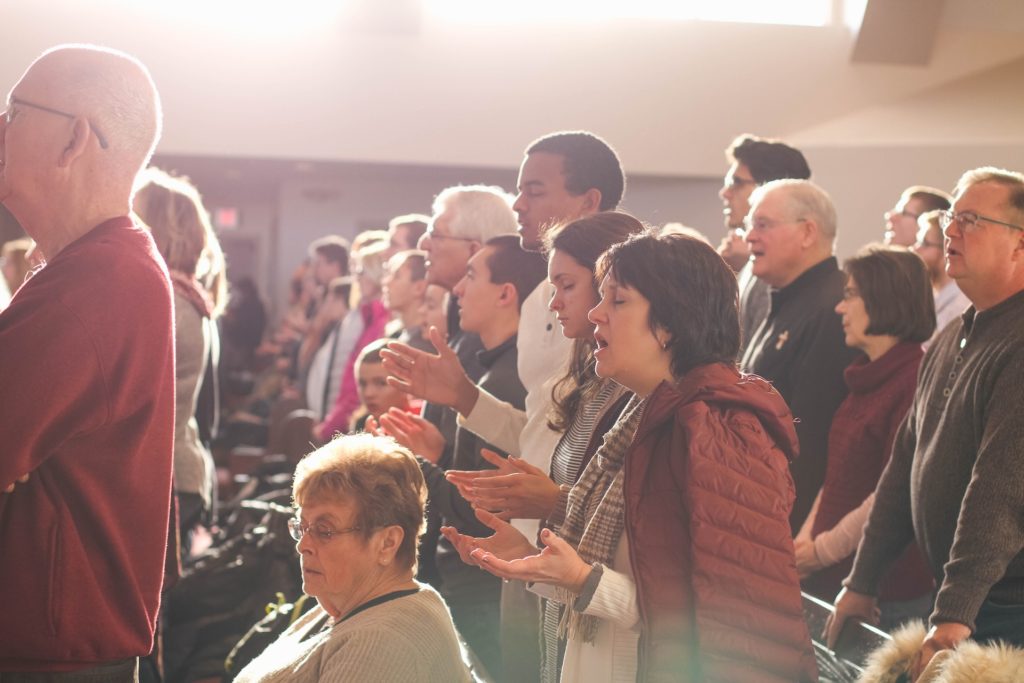
Why Worship is a Royal Waste of Time

Read more

Resisting the Urge for Perfection

If you are a part of a congregation, faith community, or serve or volunteer with a nonprofit, you know that it is important to cultivate volunteers or “lay leaders.” You probably also know that when you are building capacity of these volunteers and leaders there will likely be challenges, growth opportunities and growing pains along the way. Perfection won’t always be possible. Perhaps it shouldn’t even be the goal?
A friend of mine recently asked, “In what ways can leaders creatively resist our cultural need for perfection and performance in worship?” This question struck me.
There is something to be said about resisting an urge for perfection and performance. The larger world and culture demand perfection and demand performance now. There is nothing necessarily wrong with this. The challenge when it comes to worship though is that it seemingly creates a group of people who are the “performers” rather than an idea that all people are important parts of the worship experience, worshiping together.
From what I have seen, the cultural focus on perfection and performance has taken a serious toll on congregations and faith communities. Fewer people, perhaps, sing in worship because they don’t feel they have a gift to sing and join the song. This creates more passivity in worship, and even a sense of consumerism. “They will sing to me and I will listen,” rather than, “we will sing and praise God together.”
Read more

Why is Worship Important?

Worship includes proclamation of God’s Word, yet worship is more than Scripture lessons and a sermon. For some people, music is their favorite element of worship; yet even for music lovers, worship is more than a collection of songs. We pray during worship, yet worship is more than prayer. People need to gather for worship to happen, yet worship is much more than just a meeting. Clearly worship is more than the sum of its parts.
“The heart of worship, at least for Jews and Christians, is the celebration of God,” wrote John E. Burkhart in his book “Worship.” “True celebration of God is quite festive, sometimes almost playful, and conspicuous in its gladness as it takes delight in what God is about … Such worship celebrates God, the God known by prophets, psalmists, and apostles, and by multitudes of Jews and Christians, for whom worship is not a duty but a privilege, not a burden but a delight. Worship gladly celebrates the God whose character is caring and sharing, the God who is indecorously gracious.”
Read more

The Practice of Passionate Worship

Why use passionate to describe the practices of fruitful churches?
Without passion, worship becomes dry, routine, boring, and predictable, keeping the form while lacking the spirit. Insufficient planning by leaders, apathy of worshippers, poor quality music, and unkempt facilities contribute to an experience that people approach with a sense of obligation rather than joy. Worship loses its passion. Interpersonal conflict can also threaten the worship life of community, with participants and leaders distracted and exhausted by antagonism. Some services feel inauthentic or self-indulgent as leaders push themselves into the center of attention. Or services can seem as somber as a funeral, when people attend out of obligation, respect, or genuine affection, but privately they wish they were somewhere else. Services sometimes include so many announcements, jokes, digressions, and stories that have nothing to do with the theme, that it feels like a loosely planned, poorly led public meeting. Even with worship in homes, dinner churches, or with online communities, conversation can degenerate into complaining or rumor-mongering. Worship may be the first contact the unchurched have with a faith community, and yet guests may not find genuine warmth or a compelling message. When this happens, people come and go without receiving God.
Worship should express our devotion, our honor and love of God. Passionate describes an intense desire, an ardent spirit, strong feelings, and the sense of heightened importance. Passionate speaks of an emotional connection that goes beyond intellectual consent.
Passionate Worship fosters a yearning to authentically honor God with excellence and with an unusual clarity about connecting people to God. Whether fifteen hundred people attend, or fifteen, Passionate Worship is alive, authentic, fresh, and engaging. People are honest before God and open to God’s presence, truth, and will. People so desire such worship that they reorder their lives to belong. The empty places in their souls are filled. They experience a compelling sense of belonging to the body of Christ.
Read more

Cultivating a Culture of Worship For Every Generation

By: Yancy
Worshipping God is one of our greatest purposes. Although a lot of churches check the box of worship off the list each week, I feel there is still a lot left to be desired in how we are leading others to encounter the presence of Jesus during our times of worship when they gather. I have a burden to help teach this generation so they can understand why we worship God and what that looks like in their life.
I know that many of you who are reading this are involved in adult worship. I want to invite you to think about how your church is raising Christ followers up to be the worshippers that God intends for them to be. As a young child, preteen or student, how are they experiencing God’s presence and growing in their expression of worship?
Read more

Singing as Discipleship Glue: The Surprising Benefit of Going Through the Motions

By Mike O’Brien
Many churches and parachurches create discipleship pathways for members of their organization.Plans typically start with babies and end with senior citizens. There are steps along that pathway to equip that person to become like Christ in a variety of ways. It is rare that you will find singing, reciting creeds, sacrament, or other activities related to gathered worship as a part of these discipleship systems. Worship or music are rarely thought of as a means to an end in discipleship.
A church service rooted in a Christocentric, Trinitarian and unified retelling of God’s grand story can do much of the “work” of discipleship. Since singing takes up a majority of what we literally all do together, I believe the lyric of our songs is the most crucial component of what we are saying about who our God is and what he does.
You might have seen the popular sign “now entering the mission field” as you exit a church parking lot. I have never truly grasped that notion because I was literally saved and discipled on a church campus in my early teens. The music minister of my PCA (Presbyterian Church of America) church plant made space for me to play the saxophone with the hymns, then taught me the bass guitar, then gave me a job for $25/wk stacking the chairs. I was literally mentored and saved on Sunday.
Read more

Living Hope: An Interview With Phil Wickham

Phil Wickham is a longtime friend of Worship Leader magazine. In the wake of Phil’s newly released single, “Living Hope”, and the pending August 3rd full album release of the same title, Worship Leader magazine’s Alex MacDougall caught up with Phil. The album, Living Hope, is filled with such a fine mix of tempos, musical diversity, and lyrical imagery, and through all of it, worship is at its core. With 15 songs, Phil ranges from intimate solo and small ensemble accompaniment to full band production. For more information, visit
philwickham.com.
Worship Leader (WL): “Living Hope” is your new single. It has a hymn-like quality to it, and for the church, is anthemic in impact. What can you tell us about that song? What inspiration was behind the writing of this tune, along with your collaboration with Brian Johnson?
Read more

David Crowder – Worship Leader Interview

Read more

Michael W. Smith – Worship Leader Interview

Read more

Vocal Point: In Christ Alone

Read more


